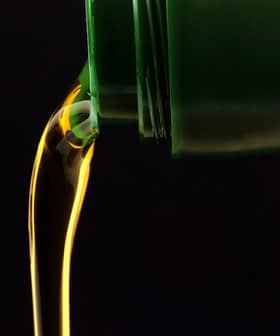Trade Group Petitions FDA for Olive Oil Standard of Identity
The North American Olive Oil Association has filed a petition with the FDA to establish a standard of identity for olive oil and olive-pomace oils in order to protect consumers and promote honesty in the industry. The NAOOA argues that a uniform standard will alleviate confusion, increase consumer confidence, and help prevent fraud in the olive oil market.
The North American Olive Oil Association (NAOOA), a trade group, has filed a citizen petition with the United States Food and Drug Administration asking the agency to create a standard of identity (SOI) for olive oil and olive-pomace oils.
The NAOOA argues that the standards are necessary to protect American consumers and promote “honest and fair dealing” in the industry.
To the extent an SOI will create a single uniform standard defining olive oil and olive-pomace oils, this will alleviate confusion about types and quality, and it will give more consumers confidence.
“A standard of identity would create a uniform, national standard for olive oil,” Joseph R. Profaci, the executive director of the NAOOA, told Olive Oil Times. “We believe this would help remove long-standing barriers to Americans consuming more olive oil.”
“The adoption of our petition would bring clarity to olive oil labels, restrict the use of potentially misleading terms like ‘pure’ and ‘extra light,’ ensure olive oil authenticity by using the latest scientifically backed standards and methodologies and provide a novel way to update the standard in the future as science and technology evolve,” he added.
See Also:Olive Oil StandardsIn 1979, the FDA ruled that there was no need for an olive oil standard, citing a lack of data in favor of having one. However, the agency left the door open to reconsidering the issue.
The NAOOA unsuccessfully petitioned the FDA to update olive oil standards in 1990 and 2012.
However, in 2018, the FDA announced that it would begin to look into adopting standards of identity for various agri-food sectors as a tool to “empower consumers to make better and more informed decisions about their diets and health.”
“It seems the FDA had olive oil in mind with this announcement,” Profaci said. “And this time we have supported our petition with consumer research data, which the FDA has indicated is critical for establishing a ‘need’ for a standard of identity.”

Joseph R. Profaci (OOT file)
In the petition, the NAOOA argues that a new olive oil standard will help Americans make informed and healthy decisions about the products they buy and that U.S. government health policies inform consumers’ perceptions of the health benefits of certain foods.
However, the group asserts that the current olive oil standards confuse Americans and prevent them from consuming more olive oil.
The NAOOA said they could back these claims with responses from a representative consumer survey of 1,500 American adults, which was administered by the association earlier this year.
“We found significant confusion around olive oil, particularly with regard to labeling and terminology,” Profaci said. “For example, nearly one in three Americans don’t believe or aren’t sure olive oil comes from olives.”
Also according to the results, 60 percent of respondents said they did not know what the terms virgin and refined referred to with respect to cooking oils. Additionally, 64 percent of respondents did not believe the word “extra” on the label had any meaning other than as a marketing ploy.
Profaci and the NAOOA argue that a lack of consumer knowledge directly impacts olive oil sales.
“To the extent a standard of identity will create a single uniform standard defining olive oil and olive-pomace oils, this will alleviate confusion about types and quality, and it will give more consumers confidence to make choices for their health among the various olive oil products,” Profaci wrote in the petition.
The NAOOA also contends that a uniform standard will make it easier for both private organizations and governments to detect fraud and catch those committing it.
Currently, each state in the U.S. is responsible for defining and enforcing olive oil standards. As a result, holding bad actors to account is nearly impossible in states without standards.
“An enforceable national standard will give industry the tools it needs to step up self-enforcement to protect consumers from being victimized,” Profaci wrote.
The NAOOA has asked the FDA to base the olive oil standards on those set by the Codex Alimentarius, the international food safety and standards body, with some changes made to various sections of the codex.
Included in the deviations would be scrapping the current category system and replacing it with a simplified one.
The Codex currently lists three categories for olive oil: olive oil, virgin olive oil and olive-pomace oil. The NAOOA proposes eliminating one of the olive oil grades to prevent confusion and misleading labeling practices.
“We believe it is confusing to have a grade of olive oil called olive oil, i.e. olive oil grade olive oil,” Profaci said. “Indeed, because it was a defined grade, manufacturers did not need to disclose the ingredients, i.e., refined and virgin olive oils, and this is important because of the differences in the health benefits of the two grades.”
Instead, the NAOOA proposes establishing two categories: olive oil, which is mechanically extracted, and pomace-olive oil, which is extracted by solvents.
“Within the olive oil category, the NAOOA proposes only four grades: extra virgin, virgin, lampante and refined – eliminating the separate ‘olive oil’ and ‘ordinary virgin’ grades in the Codex,” Profaci said.
“Products that are mixtures of refined olive oil and virgin olive oil can still be called ‘olive oil’ – because they are both olive oils – but we will require that the specific grades (ingredients) be disclosed, either in the name itself or in an ingredient statement,” he added.
Additionally, the trade group has proposed setting more strict organoleptic and chemical standards for each of the aforementioned subcategories than currently exists in the Codex.
The new standards would be much closer to the rules currently employed by the International Olive Council, which were last updated in 2019 (the Codex standards were last updated in 2017).
Among the various other technical changes the NAOOA has asked the FDA to consider are setting stricter rules around olive oil provenance and labeling. The association argues that this would prevent producers from misleading consumers about the origins of the olive oil and would prevent the use of ambiguous terms, including “light” and “pure,” on labels.
The NAOOA submitted the petition to the FDA over the Memorial Day weekend. Profaci said he expects the process to approve the proposal will move forward, but not very quickly.
“We have been in touch with the FDA for nearly a year on this, and we have every expectation that the process will move forward. But the timing is not possible to predict,” Profaci said. “Under ordinary circumstances, it is a long process that involves publication in the Federal Register with an opportunity for comment from the public, and possibly even a hearing.”
“And of course, the pandemic doesn’t make things any easier,” he added.
“But we’re hopeful that the significant potential health benefits that would be realized through the adoption of an olive oil SOI will help propel the process forward.”









